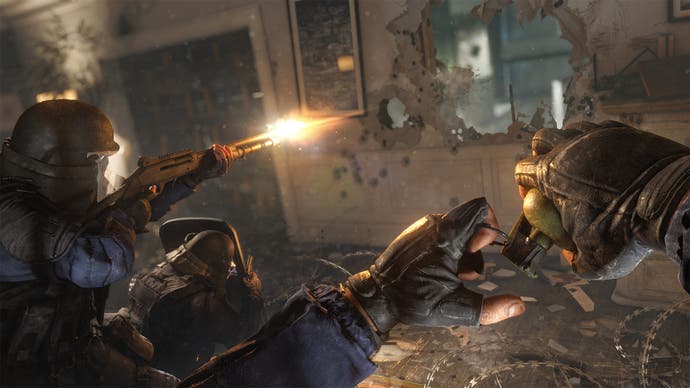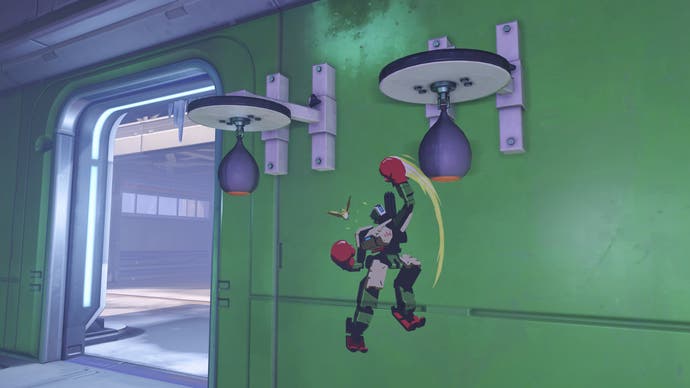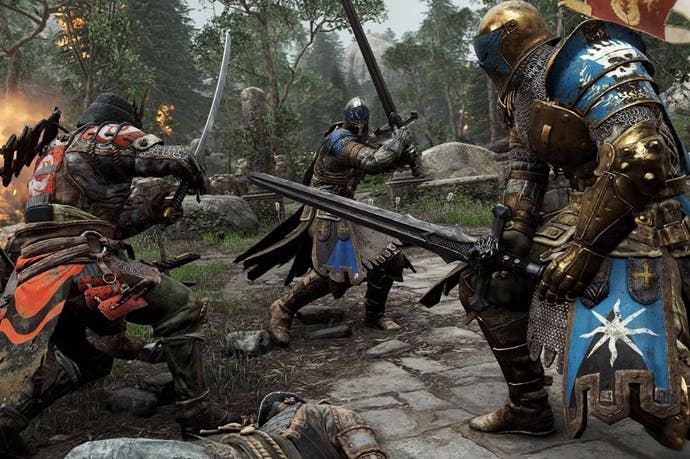Say it in less
On the joy of leaving your mic off in multiplayer.
"Two prisoners whose cells adjoin communicate with each other by knocking on the wall," goes an aphorism penned by the French mystic and political activist Simone Weil. "The wall is the thing which separates them but is also their means of communication. It is the same with us and god. Every separation is a link." I doubt Weil would have been very pleased to see this sentiment applied to a video game like Rainbow Six: Siege - in which the only god is line-of-sight, and tapping on walls is a great way to get yourself shot in the ear. But I like to think she'd have appreciated how creatively players of such games reach out to one another through the simulation's constraints, especially once you remove direct speech from the equation.
To illustrate that, consider exhibit A: my favourite Liverpudlian in all the universe. I don't know his name, but I do know he's a dab hand with an LE5AT and an inhumanly patient squad leader - patient enough that when I fell in alongside him during a close-fought Siege match, we were able to work around my shameful lack of a microphone. In theory, playing Siege without a microphone is - well, exactly like leading the charge on a building's worth of tooled-up crims, booby traps and blind corners with your mouth taped shut. But somehow progress was made, my ally calling out breach points and positions while I scuttled from door to door, pinging the terrain haphazardly and trying my best to act like Snake Eyes from G.I. Joe.

In the process I grew to love him, this heroic stranger from the banks of the Mersey. There was a sense of camaraderie reinforced rather than diminished by the inconvenience of a one-way conversation, as though we'd unwittingly unlocked an exotic difficulty tier. Later on, I was prone in the rubble of a rec-room while my friend looked on through his killcam, chatting idly with the only other player who'd brought a mic to the party. "Don't worry, Ed's in the bar hitting the whiskey," he said at one point. I got up, went to the drinks rack and made a show of studying the bottles. The other player laughed. "I think he's pulling himself a pint." Then somebody kicked in the wall and blasted me in the leg. It's hardly an anecdote for the ages, but that little exchange is genuinely one of my happiest video game memories, and I owe it all to being unable to speak my mind.
Developers decline to support direct, unmediated communication in games for any number of reasons, beyond simply lightening the load on network programmers. One is that unfiltered player speech often disagrees with the make-believe - it's harder to sell a Tolkien-esque fantasy when half the audio consists of Texan third-graders asking where the item shop is, or drunk people from Croydon bellowing at their flatmates to answer the door. Another reason is to protect players against abuse, though alas, experience has shown that abusive idiots can be tenacious in getting their point across. There are also games that make struggling to express yourself a part of the tale, such as 2015's Wander - a (sadly rather shambolic) non-combat MMO in which you're asked to learn a fictional language, Rozhda, discovering letters in the world and tracing them with touchpad or mouse in order to interact with other players. A more successful example is the Souls series, in which multiplayer clans are reimagined as religious cults that determine not just the form but the psychological tenor of online play, and character emotes are tethered to certain story threads.
Designing for indirect communication is a bit of a dark art, whether you're talking about bog-standard gestures or scripted barks or something more esoteric - a degree of ambiguity is inevitable, and desirable in that it encourages players to be imaginative, but simple frustration may be the result. The most ingenious strategies are often dreamt up by player communities themselves, post-release. Every online multiplayer game worth its salt has sprouted its own de facto in-game language and array of social customs, partly provided for by the developer and partly the result of players bashing the pieces together as the situation demands.

Ubisoft's For Honor, for instance, has already evolved a fairly stringent body of etiquette, comparable to that of the old Jedi Knight duelling community. I've not played for a while so I'm probably not up to speed with the latest trends (thanks, Ghost Recon: Wildlands and Mass Effect: Andromeda), but few other multiplayer games I've encountered set such store by avatar body language, as you strain to work out whether your opponent is the kind to resort to a cheapo environmental kill. The game has a pretty small (and expensive) set of character emotes, most of them variations on the theme of "I'm gonna sword you real good", but in the hands of a responsive player, these can be made to express volumes. Falling to your knees in despair - one of the default options - can say everything from "Blimey, that was a close one" through "Oh the humanity!" to "How do I get out of this chickens**t outfit?" Spamming "Wow!" can signify anything from "Nice cancel!" to "willywonka.gif". As in social interactions at large, context is king.
The richness of interactions in For Honor pales, however, by comparison to Blizzard's Overwatch, with its larger cast, gigantic library of emotes and more whimsical, indulgent tone. Among the game's brilliant touches is that you're free to hang out in the saferoom before the match begins, breaking the furniture and getting to know your team-mates. When playing with randoms, these interludes can be surprisingly decisive - I've occasionally been able to call the outcome of the match simply by watching my allies bond, butt heads or clown around. Who's being picky about planting their spray, and who's trying to blot yours out? Who's perched atop the model solar system on Watchpoint Gibraltar spamming the group-up button, like a kid screaming at his mum to watch him go down the slide in a playground? Who's pre-emptively yelling "I need healing", and who's gesticulating at the other team's Tracer through the door?
Overwatch is a work of forceful, bawdy personality, but it and the other games I've discussed are all the stronger for being to some degree just interfacial tissue - an apparatus for communication in which the pressures of completing a task fetch up against the fundamental, endearing oddness of fellow human beings.









